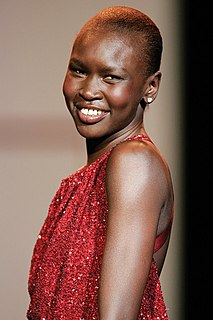A Quote by Bertil Ohlin
I was born into an upper-middle class family in a village in the South of Sweden in April 1899. It was a large family with seven children, a large house, and a home which was very hospitable and open to friends and relatives.
Related Quotes
I came from an educated, upper middle-class family. My mother was a Persian and history teacher at a large high school for girls. Many of the women in my extended family and in our circle of friends were professionals. In those days, women were a vital part of the economy in Kabul. They worked as lawyers, physicians, college professors, etc., which makes the tragedy of how they were treated by the Taliban that much more painful.
A very large part of English middle-class education is devoted to the training of servants...In so far as it is, by definition, the training of upper servants, it includes, of course, the instilling of that kind of confidence which will enable the upper servants to supervise and direct the lower servants.
Here's the thing: the unit of reverence in Europe is the family, which is why a child born today of unmarried parents in Sweden has a better chance of growing up in a house with both of his parents than a child born to a married couple in America. Here we revere the couple, there they revere the family.
Which class is happiest, the rich, the middle class or the poor? A very successful executive of a large organization touches upon this vital subject in a long letter to all his salesmen. He uses as his text a passage from Robinson Crusoe which included this: ""My Father bid me observe it, and I should always find that the calamities of life were shared among the upper and lower part of mankind; but that the middle station had the fewest disasters, and were not exposed to so many vicissitudes as the higher or lower part of mankind.
I'm sure everything has a bearing on what I'm doing. My family is a lower-middle-class family, there's lots of children, seven brothers, two sisters grew up together, fighting with each other, went to school. My mother went to school up to 4th grade. My father went to school up to 8th grade. So that's about the education level we had in the family.
I was brought up in a very naval, military, and conservative background. My father and his friends had very typical opinions of the British middle class - lower-middle class actually - after the war. My father broke into the middle class by joining the navy. I was the first member of my family ever to go to private school or even to university. So, the armed forces had been upward mobility for him.




































